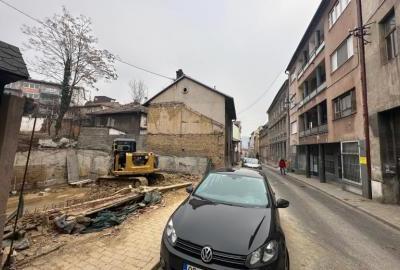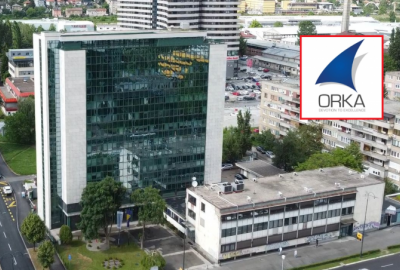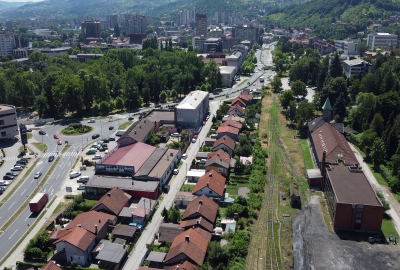Žurnal in English
General's untouchable son: Police, Prosecutors, and Lawyers have been protecting a brutal abuser for years
Since 2021 A. H. has been convicted three times for causing bodily harm to her and others (both minor and serious bodily injuries). He has also been convicted for physically attacking a police escort patrol. He was sentenced to probation twice, and for the attack on officials – police patrol, he received a one-year prison sentence, which was later replaced with community service while remaining at liberty.
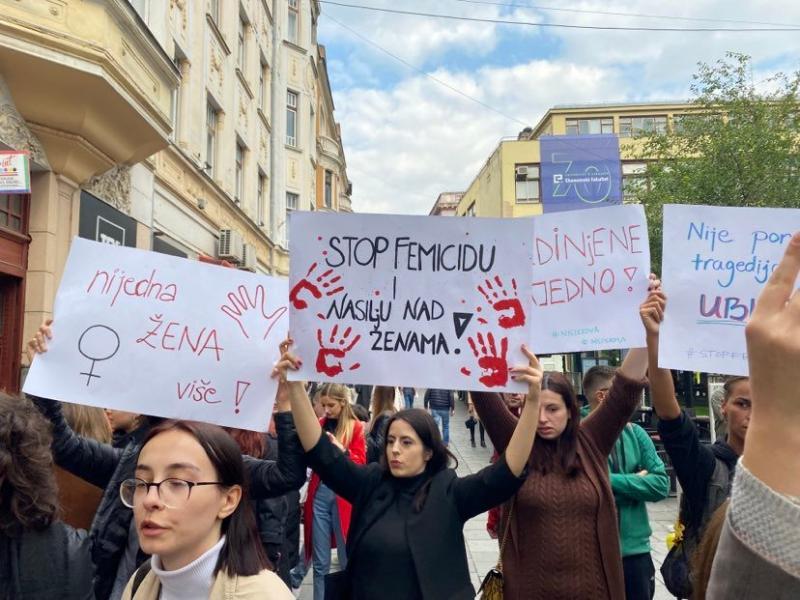
Between 2019 and 2021, Jane Doe (identity known to the newsroom) and those around her were victims of violence and terror by A.H. from Sarajevo. The victim first reported the violence to the relevant authorities in 2020.
- I endured bureaucratic torture and organized protection, which was continued to be provided to the abuser by the Ministry of Interior of the Canton of Sarajevo and the Prosecutor's Office of the Canton of Sarajevo. This includes individuals such as Sabina Sarajlija, Meliha Dugalija, associate Edin Pirija, and others, in cooperation with the reputable lawyer Edina Rešidović and other lawyers from the Rešidović Sabrihafizović law firm. This law firm represents the abuser in all cases before the court and also represented his father, a general in the Army of the Republic of Bosnia and Herzegovina, before the Hague Tribunal. Some individuals close to this case were also represented by lawyer Nermin Mulalić, who previously represented Sabina Sarajlija in her disciplinary proceedings related to irregularities in her role as the chief cantonal prosecutor – said Jane Doe to Žurnal.
Since 2021 A. H. has been convicted three times for causing bodily harm to her and others (both minor and serious bodily injuries). He has also been convicted for physically attacking a police escort patrol. He was sentenced to probation twice, and for the attack on officials – police patrol, he received a one-year prison sentence, which was later replaced with community service while remaining at liberty.
Mitigating circumstances
On May 8, 2020 A.H. physically attacked Jane Doe, with whom he had previously lived in her apartment in Sarajevo. He hit and kicked her all over the body, using clenched fists, clutching her face, nose, mouth, pushing her to the floor and tying her hands with a T-shirt. The witness at the trial, the victim's neighbor, said that he then heard yelling and commotion from the apartment, as well as the threats that A.H. was shouting: I will kill you!
A.H. pleaded guilty, and in September 2021, the Sarajevo Municipal Court sentenced him to a one-year suspended sentence for causing minor bodily harm. In deciding on the sentence, the Court took into account the defendant's early confession of the crime, his “expressed remorse”, and his lack of prior convictions as mitigating circumstances. There were no aggravating circumstances.
The judgment we have reviewed states that, considering the mitigating circumstances and the sentence imposed, the sentence will deter the accused from repeating the crime:
- The Court also emphasizes that the conclusion of the criminal proceedings with a guilty plea reflects a more complete assumption of responsibility by the accused for the crime committed, his comprehension and understanding of the hurtfulness of his actions, as well as his willingness to face the consequences and change his behavior. This will contribute to a more effective realization of the purpose of criminal sanctions - reads the judgment signed by Judge Denis Kurtović.
A.H. continued to abuse his victim, but the sentence in the new case of abuse, which was also suspended, was rendered after the first suspended sentence had been delivered.
Suspended sentence again
On February 5, 2021, he physically attacked both her and her friend, who tried to protect her. For this, he was again sentenced to probation for causing minor bodily harm (to Jane Doe) and serious bodily harm (to her friend).
- The defendant committed the criminal offenses with direct intent, as he was fully aware that his actions would lead to a prohibited consequence and he did desire those consequences to occur. The action taken by the defendant was undoubtedly the result of his will – reads the judgment issued in June 2022.
Judge Jasmina Sazdovski sentenced A.H. to a two-year suspended sentence in this case as well, based on a plea agreement. The court considered the guilty plea as a mitigating circumstance and the previous conviction for violence as an aggravating circumstance. Thus, when A.H. was given this suspended sentence, it was already a known fact that he had been previously convicted of a similar, but now more serious, crime.
The decision to impose a suspended sentence in this case is also based on the fact that the accused admitted to committing the criminal offense. Although he had been previously convicted of a similar crime, the court determined that, after the first suspended sentence in 2021, the accused “no longer had any problems with the law”. The court also noted that he was in a “critical period of his life”; that he had accepted “responsibility for his behavior”, and that he would, therefore, respect the legal system in the future and refrain from committing similar crimes:
-… at this moment, the execution of the prison sentence is not deemed justified; however, it is considered justified to give the accused the opportunity to prove that this behavior is indeed a matter of his past and the result of a critical period in his life - reads the judgment signed by Judge Jasmina Sazdovski.
While the Prosecutor's Office was negotiating and signing a plea agreement with A.H. in this case, proceedings were underway against him before the Municipal Court in Sarajevo for assaulting officials—a police escort patrol. Additionally, the Prosecutor's Office had received a new report of domestic violence against the victim, which had occurred in October 2021.
- During the main trial, the Prosecution filed a plea agreement, concluded on March 11, 2022, in the court file. The agreement was concluded by the accused A.H., Cantonal Prosecutor Darko Martinčević, and the attorney of the accused - reads the judgment. Prosecutor Darko Martinčević, on behalf of the Prosecutor's Office, represented all three previous proceedings against A.H.
In response to the victim's written inquiry to the Cantonal Prosecutor’s Office of Canton Sarajevo regarding whether the Prosecution takes into account newly received criminal complaints against the same perpetrators when concluding a plea agreement, the Prosecutor’s Office stated that this inquiry “cannot be treated as a request under the Freedom of Information Act in FBiH”.
Vanishing criminal complaints
The bureaucratic torture of the victim does not occur only before the Prosecutor's Office. Some of the violence reports that the victim filed with the Canton Sarajevo Ministry of Interior, Novo Sarajevo Police Station, during 2021 had disappeared—either within the Ministry or somewhere between the Ministry and the Prosecutor's Office, claims Jane Doe. As a result, the victim refiled the reports directly with the Prosecutor's Office in 2022.
The victim had in July of 2022 subsequently filed three new criminal complaints for abuse that took place between the fall of 2019 and June 2020, submitting a total of 28 medical reports from authorized medical institutions. In these cases he took away her phone, locked her in an apartment where he abused her, dragged her across the floor, hit her with open fists on her body and head, and kicked her in the left side of her back. A few years after that blow, the victim had her lower left lung lobe (the place where she received strong blows) removed at the Clinical Center of the University of Sarajevo and the etiology of the anomaly, according to the medical report, remained unclear. During these attacks, depending on when they had happened, he locked her in the apartment, hit her legs with cables, heated a spoon and pressed it against her body, caused injuries to her face with blows, inflicted injuries of so-called wrestler ear with blows on several occasions, and had poured chemicals on her head and body. All of the above criminal complaints are accompanied by medical documentation.
In August 2023, after the victim filed a complaint with the Canton Sarajevo Assembly regarding the work of police officers due to what she believed shortcomings in the procedure and the disappearance of records from the crime scene investigation, she received a response stating that the complaint had been rejected due to the statute of limitations. The Public Complaints Committee decided to discontinue the case. In response to the victim's additional complaint regarding the missing reports of violence, the Internal Control Department of the Cantonal Ministry of Interior has not yet provided the victim with any documentation on the outcome of the investigation.
The plea agreement based on which the second judgment on suspension of sentence for minor and serious bodily harm was reached, was concluded in March 2022. The judgment, issued by Judge Jasmina Sazdovski, was delivered on June 6, 2022, and that judgment became final and binding only eight months later, on January 30, 2023. The victim believes that this judgment was reached with delay:
- This was done to ensure that the abuser doesn’t violate the previous suspended sentence, as the judgment in this case was delivered to the victim almost exactly on the day the probation period for the abuser under the previous judgment expired. I reported all of the above to the Office of the Disciplinary Prosecutor, but my report was rejected, with the explanation that Judge Jasmina Sazdovski rendered the judgment with a “minor delay” (…) “which does not constitute a disciplinary offense”. Shortly after this procedure, Judge Jasmina Sazdovski was promoted to the position of cantonal judge – said Jane Doe to Žurnal.
Each time she gave a statement to the Prosecutor's Office in connection with the reports, she presented photo documentation (pictures of bodily injuries), bloody clothes with which she had been strangled, and clothes soaked in Domestos:
- But Edina Pirija rejected all of the aforementioned evidence. I offered to play audio recordings in which A.H. threatens me, and in which a sound that resembling clicking of gun can be heard, but the person in question refused to listen. On the contrary, she informed me that I was not authorized to film the abuser.
Third proceeding against A.H.
After two suspended sentences and a third in which A.H. was sentenced to community service with a non-final judgment, a third trial is currently underway against A.H. for assault on the victim. However, there are conflicting allegations from the Cantonal Prosecutor's Office regarding the period covered by this indictment. The indictment was filed only after two years of investigative proceedings, in August 2023, despite the victim's repeated requests for more prompt action from the Prosecutor's Office employees, specifically Edina Pirija, a specialist who communicated with the victim on behalf of the then-acting prosecutor, now the Chief Prosecutor of the Cantonal Prosecutor's Office, Meliha Dugalija. During this period, the victim was denied information during interviews about which acts of violence would be included in the indictment, and whether previously missing and re-filed reports would be included. As a result, the victim contacted the Cantonal Prosecutor's Office in writing regarding these concerns.
- One of the responses from the Canton Sarajevo Prosecutor’s Office reads that the indictment “covers the period from 2019-2021”, while other statements of the Canton Sarajevo Prosecutor’s Office indicate that the indictment does not include events from this period “due to the lack of concrete evidence, aside from the victim's statements”. I would like to note that these reports were supported by a total of 28 medical reports from authorized health institutions, which confirm the physical injuries inflicted on me by A.H. during the specified period. Additionally, there were written confessions from the abuser admitting to inflicting these injuries, as well as testimony from a witness—the abuser's sister - said the victim.

Cantonal Prosecutor's Office of Sarajevo Canton
In the victim's written communication with the Canton Sarajevo Prosecutor’s Office and email exchanges with the then-Chief Cantonal Prosecutor Sabina Sarajlija, conflicting information was also provided regarding the qualification of the criminal offense. Some read that the indictment was filed for the criminal offense of domestic violence under Article 222, paragraph 2, while others that the indictment is for domestic violence under Article 222, paragraph 1 of the Criminal Code of FBiH.
Due to the fact that paragraph 3 of the same Article, which provides for a more severe punishment for the perpetrator, is not applied, the victim, who is a lawyer by profession, believes that this leaves the possibility of a lenient punishment for the abuser. Additionally, the unnecessarily long investigation period, which allowed A.H.'s earlier suspended sentence to expire, leads the victim to believe that this is not a coincidence, but rather the result of intentional micro-failures by the Prosecutor's Office, which enabled the abuser to avoid a prison sentence.
- According to the information I have regarding this procedure, a total of four prosecutors have been involved to date (Lejla Hasanbegović, Meliha Dugalija, Maja Pašić, and ultimately Sabina Sarajlija), along with associate Edina Pirija. During the court hearing, the perpetrator's defense was based on denying the existence of a lifetime union me. When I asked Ms. Sarajlija why the Canton Sarajevo Prosecutor’s Office had not requested evidence of the duration of our union, which I inevitably possess, she explained that she had just been assigned the case. I then had my question recorded in the court transcript, asking whether the Prosecutor's Office was dispersing responsibility by reassigning the case. Only later did I learn that Ms. Sarajlija had been sanctioned with a disciplinary offense by the Office of the Disciplinary Prosecutor for reassigning the case during her tenure as Chief Cantonal Prosecutor. During this hearing, I also learned that the procedure was addressing only one act of violence, although I had filed criminal complaints with the Prosecutor's Office for four separate incidents of violence over several years of cohabitation with the perpetrator.
The victim filed a complaint about all of the above to the Office of the Disciplinary Prosecutor. Its response read that judicial office holders have “functional immunity, especially in relation to the opinions they provide or the decisions they make, which is one of the guarantees of their independence”.
- Thus, the prosecutors are independent in their assessment that reports of violence, supported by 28 medical reports, a written confession from the abuser, and witness testimony, are considered complaints “that are not supported by any evidence other than the victim's statement” - said the victim.
One of the judgments ordered mandatory psychosocial treatment for A.H., and in another, his prison sentence was replaced by 90 days of community service to be carried out at liberty. The measure was to be implemented by the Center for Social Work of the Municipality of Novo Sarajevo and reported to the Municipal Court in Sarajevo. Žurnal inquired with the Center for Social Work about whether the measure had been implemented, but our request was rejected due to personal data protection. The Municipal Court in Sarajevo only responded that the Court had received the notification from the Center.
Between January 2023 and June 2024 the Prosecutor’s Office in Bosnia and Herzegovina received 1.298 reports of domestic violence, yet only 145 indictments were raised. The highest number of reports is in Zenica-Doboj and Tuzla Cantons. According to unofficial statistics, approximately 70 percent of convictions for domestic violence resulted in a suspended sentence, much like the two court judgments mentioned by the victim in our text.
Zlatan Hrnčić, a doctor of social sciences with expertise in strategic prevention of domestic violence and the protection of human rights, and an expert advisor at the Gender Center of the Government of the Federation of BiH, tells Žurnal that adequate sanctions are also a form of prevention. They not only deter the sanctioned perpetrator from committing more serious forms of violence in the future, but also send a clear message to all citizens that violence will be punished:
- Namely, the most severe forms of domestic violence that result in death are punishable by prison sentences ranging from ten years to life imprisonment. However, what all these cases have in common is that they were preceded by prolonged abuse. According to statistics, around 70% of sanctions are suspended sentences, and the perpetrators are often habitual offenders. Therefore, an appropriate prison sentence, even for the earliest forms of abuse, could help prevent the recurrence of this criminal offense and, ultimately, the most severe forms of violence that lead to murder.
Judicial office holders have independence in their work, so there can be no discussion about sanctioning them if the pronouncement of judgments is within the framework of legal norms.
- What is possible and effective is the education of judicial office holders to raise their awareness of this specific area, allowing them to apply certain standards. This type of education is being implemented, but it takes time to cover the entire target population of professionals. Other actors in this multi-sectoral area are also crucial, such as police officers who respond to reports of violence, gather evidence, propose protective measures, and submit reports on the committed criminal offense. Additionally, prosecutors who raise indictments, judges who pronounce sanctions in criminal proceedings, and those who issue protective measures under the law on protection from domestic violence and others, all play vital roles - explains Hrnčić.
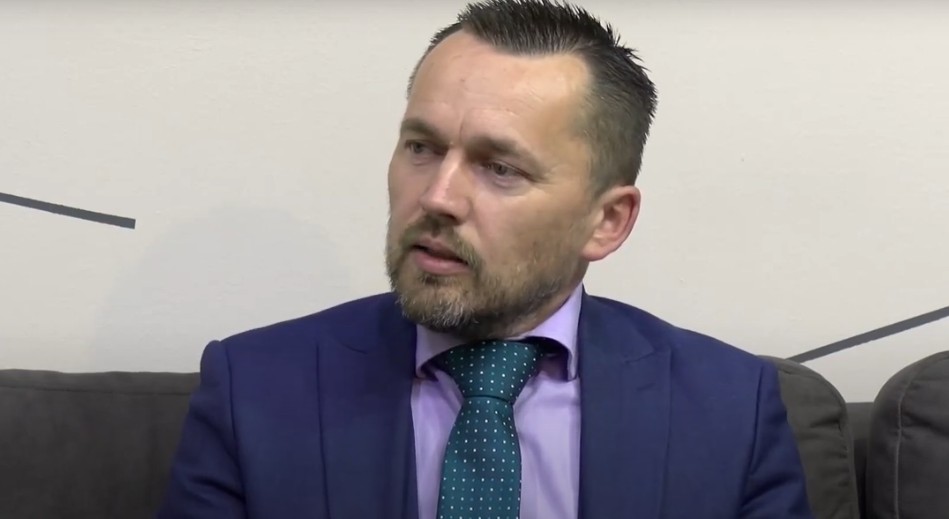
Sarajevo based lawyer dr. sci. Amila Mujčinović, who frequently works with victims of domestic violence, tells Žurnal that suspended sentences were previously imposed in as many as 90 percent of cases. However, this practice has been changing recently.
A suspended sentence, like a prison sentence, rarely has a re-socializing effect on the perpetrator if they return to the same household as the victim, which is often the case, adding.
- I believe that, by Lambros' definition, someone is violent by nature. Certainly, a prison sentence has a greater rehabilitative role than a suspended sentence, which is a milder punishment.
Sanctioning judges, as those rendering judgments, would realistically not contribute to any significant benefit for the victims or the system:
- Judges are sanctioned according to the Disciplinary Rules of the Office of the Disciplinary Prosecutor, which operates within the High Judicial and Prosecutorial Council. Judges cannot be held accountable for their decisions or the type of decision made, i.e., the judgment. On the other hand, the public often has a distorted perception of judges, which is partly due to media coverage. A judge makes decisions within the framework of an indictment based on the legal evidence collected by the prosecution. Therefore, if there is no solid evidence, the judge cannot impose a harsher sentence, for example. Similarly, the Prosecutor’s Office may attempt to build a case and open an investigation, but if the victim refuses to testify as a victim of violence, the Prosecutor’s Office often abandons the indictment against the perpetrator. Many factors influence a process, and it is not possible to single out anyone as particularly responsible, as everyone operates within their respective jurisdiction.
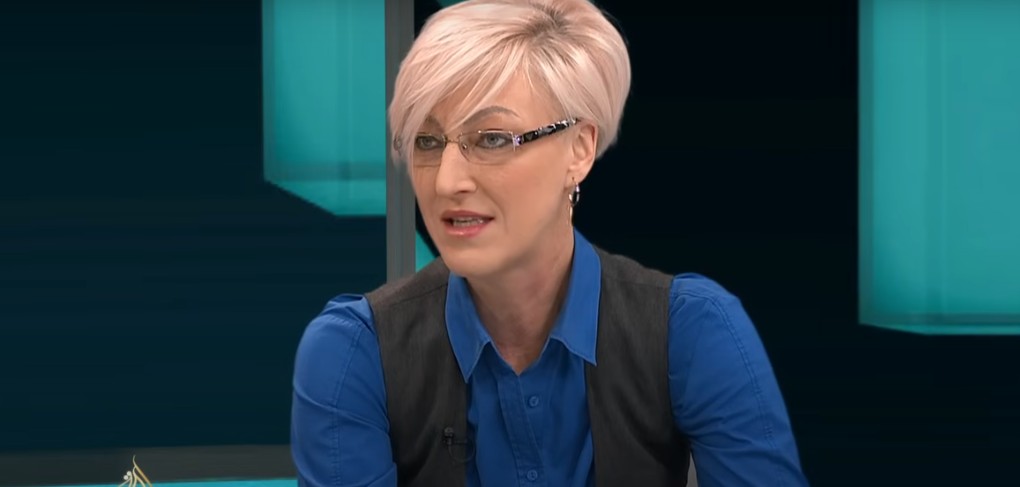
The system has been established and has become more functional in recent times, states our interlocutor, but like any system, including the one in Bosnia and Herzegovina, it remains formal and lacks emotional support. Victims of domestic violence need psychological, economic, and many other forms of assistance:
- The establishment of safe houses has proven to be an excellent and functional model in this system. An irreplaceable role is played by the Centers for Social Work, which refer victims to safe houses, as well as the police, who are educated on how to guide victims to these safe houses and contact the relevant centers. However, I would like to emphasize that even after a prison sentence for a violent person, there are situations like the Maslan case, where a violent individual killed the victim after serving time. I believe the main issue lies in monitoring violent individuals after their conviction, particularly during that critical period, which requires legal norms to be changed. On the other hand, the weak link in the entire system are the victims, to whom the system does not provide adequate psychosocial support or the possibility to recover or change their environment, often leading to victims changing their attitudes or opinions, which complicates the judicial process and impedes the conclusion of cases.
Jane Doe warns that she is not the only victim of A.H.'s violence and that she believes she will not be the last:
- What kind of protection can I expect for myself, considering that the judicial system has so far failed to impose a more serious punishment for the attack on officials - the police committed by this abuser, even though Judge Đenana Jovanović had access to two previous judgments at the time of sentencing A.H. for violent crimes? For the aforementioned attack, Judge Jovanović sentenced A.H. to one year in prison, which was later replaced with community service at liberty. You can see from the previous judgments that A.H. exhibits violence not only towards me as a victim, but I also have evidence that he was violent towards his sister and repeatedly beat his ex-partner. However, his ex-partner never reported him. A.H. has numerous misdemeanor penalties, and I also have evidence that he frequently instigates public fights, including in recent times. I sent all of the above information to the acting prosecutors so that they could use this evidence in the current proceedings, but as we can see from the judgments, this was not done. While I was living with the aforementioned person, I was often threatened by the mention of Edina Rešidović, the lawyer, as well as by the connections his father, a former general of the Army of the Republic of Bosnia and Herzegovina, had. I was told that A.H. would “never see the inside of a prison”, and that my life and reputation would be destroyed if I ever dared to report him for violence – she said to Žurnal.
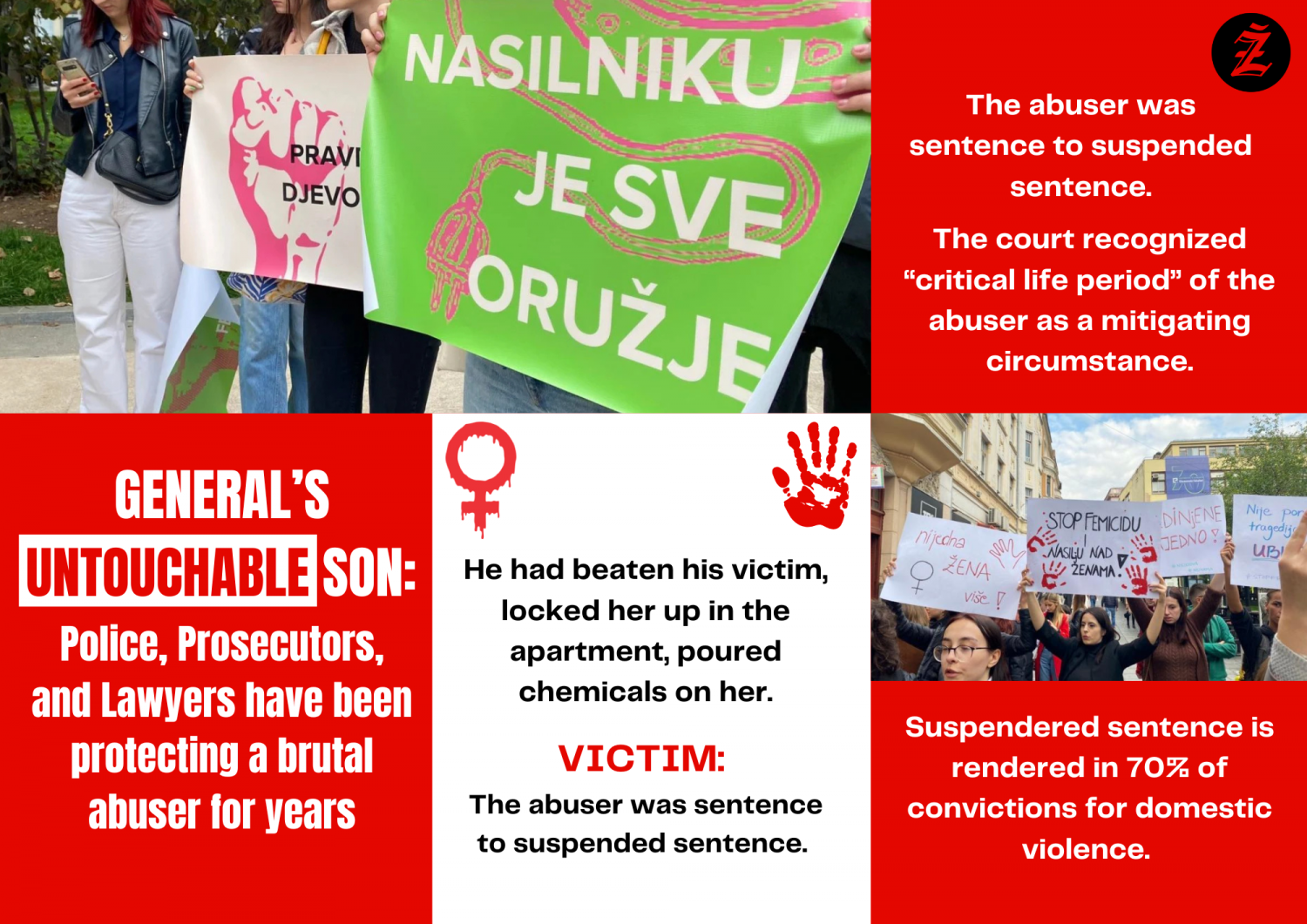
(zurnal.info)





